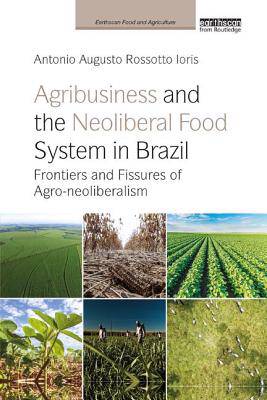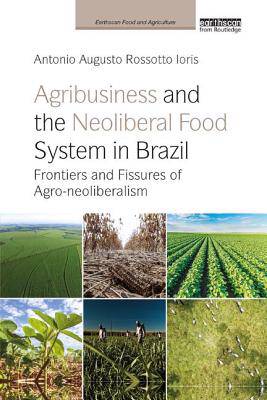
- Retrait gratuit dans votre magasin Club
- 7.000.000 titres dans notre catalogue
- Payer en toute sécurité
- Toujours un magasin près de chez vous
- Retrait gratuit dans votre magasin Club
- 7.000.0000 titres dans notre catalogue
- Payer en toute sécurité
- Toujours un magasin près de chez vous
Agribusiness and the Neoliberal Food System in Brazil
Frontiers and Fissures of Agro-neoliberalism
Antonio Augusto Rossotto Ioris
85,45 €
+ 170 points
Format
Description
Due to new production areas and persistent productivity gains, Brazil has consolidated its position as a global leader and even as a 'model' of commercial, integrated crop production. The country is now seen as an agricultural powerhouse that has a lot to offer in terms of reducing the prospect of a looming, increasingly global, food crisis.
Agribusiness and the Neoliberal Food System in Brazil
focuses on the intensification of Brazilian agribusiness as a privileged entry point into the politicised geography of globalised agri-food. Drawing on rich empirical analysis based around three fieldwork campaigns in the state of Mato Grosso, the book examines the connections between farming, markets and the apparatus of the state. The importance of agribusiness expansion within the wider politico-economic context of Brazilian neoliberalism is demonstrated, thus drawing broader conclusions about the main trends of agribusiness in the world today and providing recommendations for future research.This book will be of great interest to students and scholars of agribusiness, neoliberalism and global food production, as well as those interested in Brazil and Latin America more generally.
Spécifications
Parties prenantes
- Auteur(s) :
- Editeur:
Contenu
- Nombre de pages :
- 232
- Langue:
- Anglais
- Collection :
Caractéristiques
- EAN:
- 9780367248765
- Date de parution :
- 06-06-19
- Format:
- Livre broché
- Format numérique:
- Trade paperback (VS)
- Dimensions :
- 155 mm x 236 mm
- Poids :
- 362 g

Les avis
Nous publions uniquement les avis qui respectent les conditions requises. Consultez nos conditions pour les avis.






